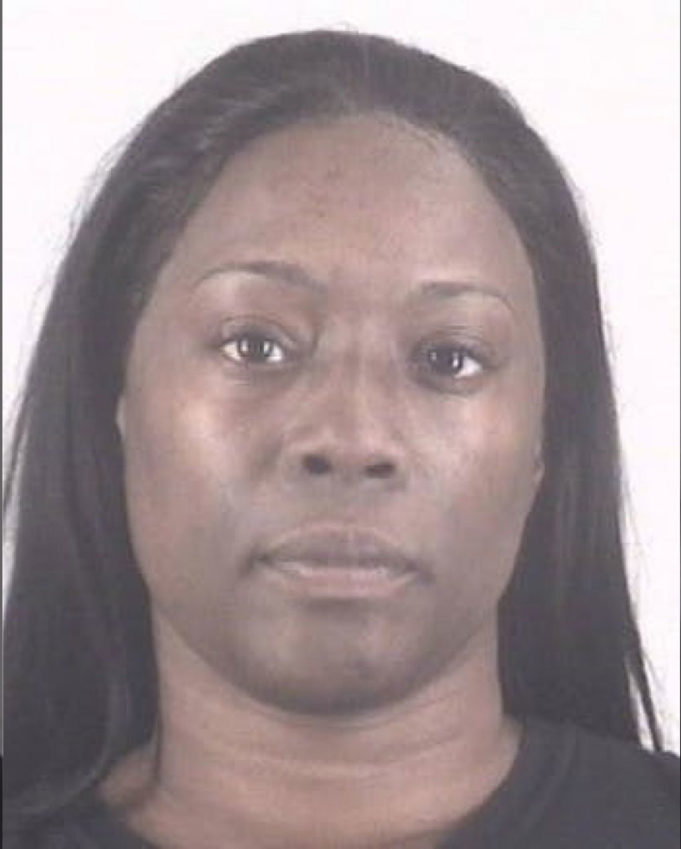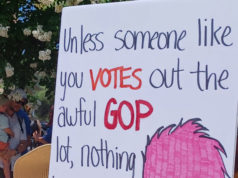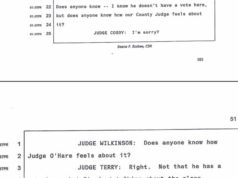The ACLU of Texas and the Texas Civil Rights Project have joined Crystal Mason’s appeal. The mother of three from Rendon was convicted for violating Texas’ voting rights statute for accidentally casting a provisional ballot in the 2016 presidential election for Hillary Clinton while on supervised release. Mason was sentenced to five years in prison in March 2018 and was given an additional sentence for violating the terms of her federal supervised release, of which she had served 10 months.
Mason’s story begins in 2012, when she and her husband were sentenced to five years in federal lockup for tax fraud. The couple ran a tax preparation business and was found guilty of illegally inflating clients’ returns to increase the couple’s fees. Mason served more than three years for that charge before being given 11 months of supervised release.
During those 11 months is when the presidential election took place. She was encouraged to vote by her mother, Sherrin McGrady. Mason, unsure of her voting status, cast a provisional vote — standard for people uncertain of their eligibility to vote. In theory, a decision is made on all provisional votes as to whether the person who cast them was eligible or not. If not, the normal procedure is simply to not count them, which is exactly what happened with Mason’s vote. But the big bosses down in Austin – in particular Gov. Greg Abbott, Lt. Gov. Dan Patrick, and Attorney General Ken Paxton – have been trying to prove voter fraud is rampant as a way to suppress minority voters. Abbott and company wanted to make an example of Mason, who has not served any jail time as she appeals the conviction. Oral arguments in the case are set for June 4.
Tommy Buser-Clancy, a staff attorney for the ACLU of Texas who is working on the appeal, said that all felons in Texas who have completed their sentences, paroles, or probations automatically get their voting rights back. He also said that it was unusual for someone who cast a provisional ballot to be prosecuted. “All of the studies show that in-person voter fraud is very rare,” he said, “and to go after Ms. Mason, who is not guilty of voter fraud, is extremely rare and, I think, a miscarriage of justice. We at the ACLU of Texas think that the state was trying to find someone to make an example of to trump up their claims of voter fraud, which is why Ms. Mason was singled out. We think the law was stretched and misapplied in this case to get a conviction.”
Buser-Clancy pointed to several reasons why he thinks Mason is innocent. “First, she cast a provisional ballot,” he said. “The way those work is that if one is uncertain of their eligibility to vote, you file a provisional ballot and it’s later determined to be valid or not. In her case, the vote was not counted.”
Secondly, he said, Mason was not on probation: “She was on federal supervised release, which is different than traditional Texas probation. And the Texas law says she’s ineligible to vote until her probation ends, but the statute says nothing about federal supervised release. We do not believe she was ineligible to vote.”
There is also the idea that the illegal voting statute requires that the person voting knows he or she is voting illegally. “She did not know she was voting illegally, and the statute’s plain terms state the person has to know they are ineligible,” Buser-Clancy said. “You are not supposed to be prosecuted for making an innocent mistake, because if the state can go after innocent people when they make an innocent mistake, then a lot of people will be scared off from voting.”
The bitter irony of the Mason case is that while the investigation into voter fraud in Texas turned up only a handful of extremely minor cases of fraud (“Texas Loses Voter Suppression Ploy,” May 8), a counter-investigation by the Texas Civil Rights Project discovered that in the 2018 midterm elections more than 277,000 legal voters in Texas were denied their right to vote by a combination of late poll openings, long poll lines, malfunctioning voting machines, and voter intimidation.












